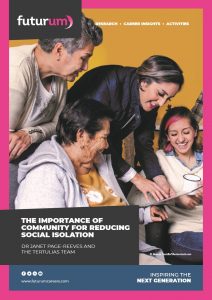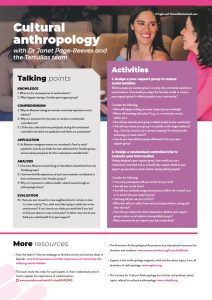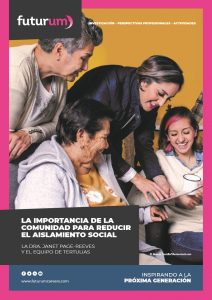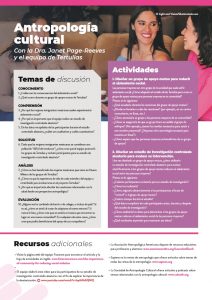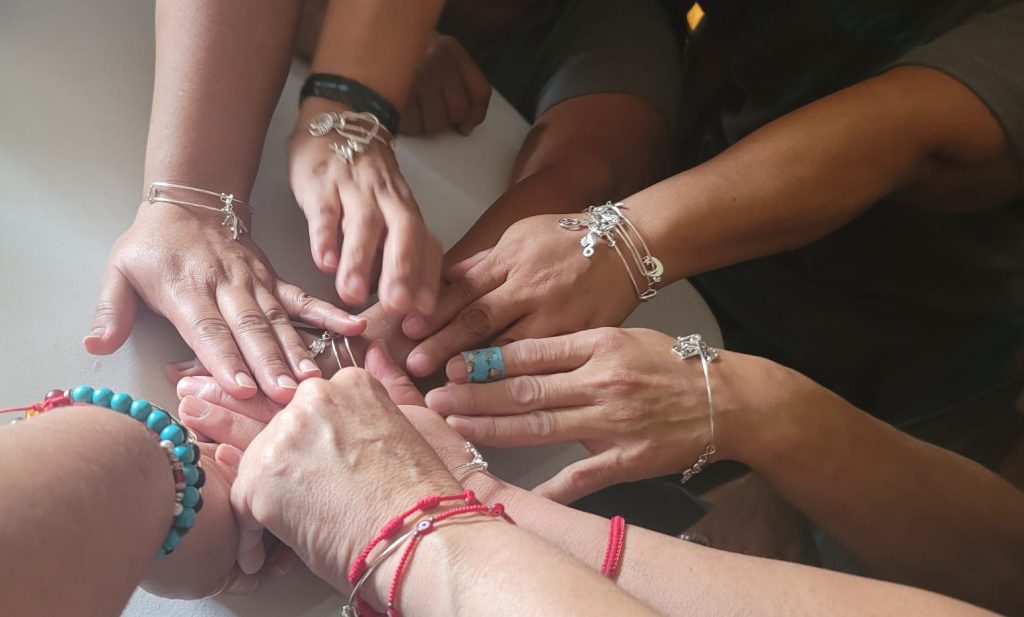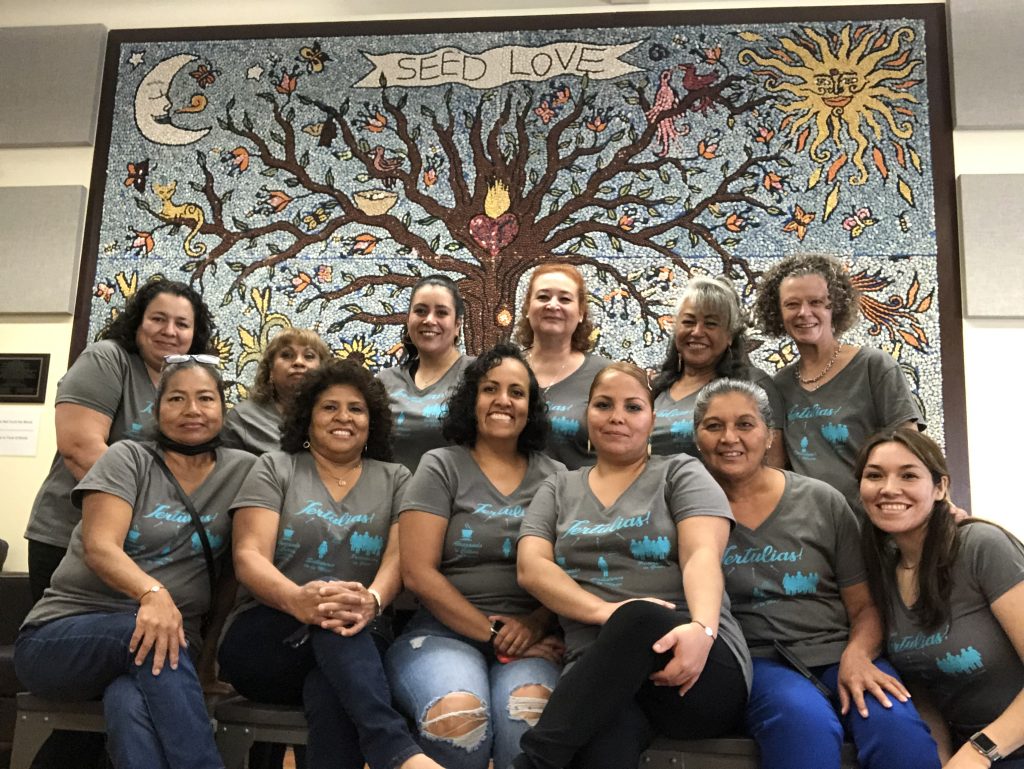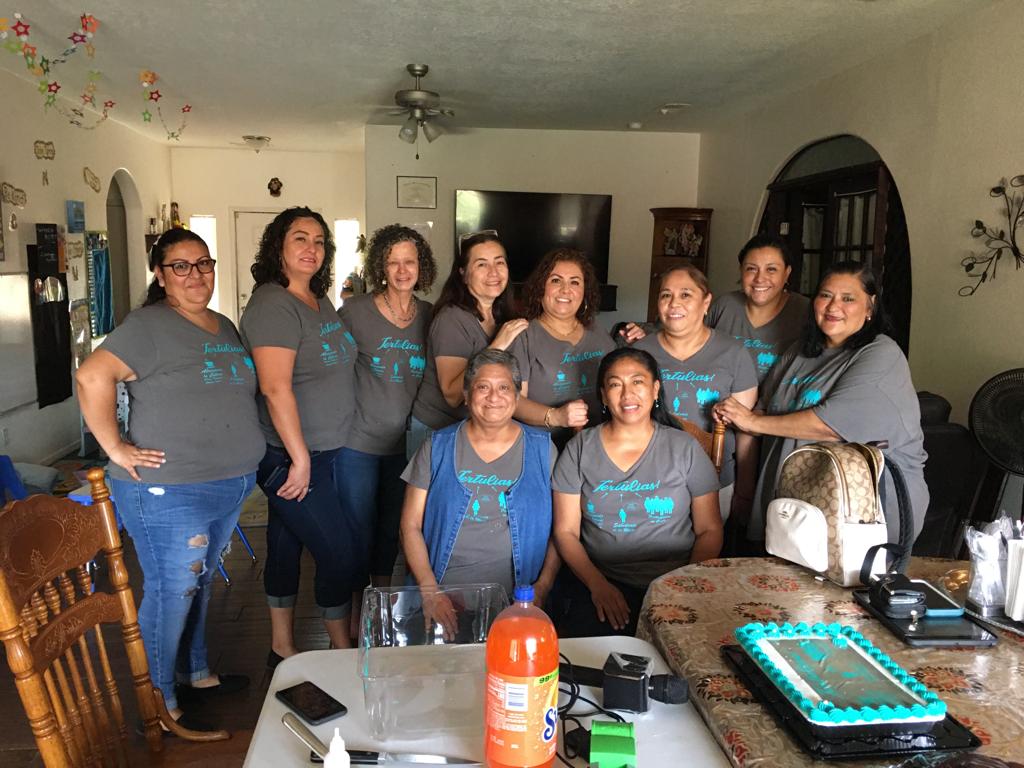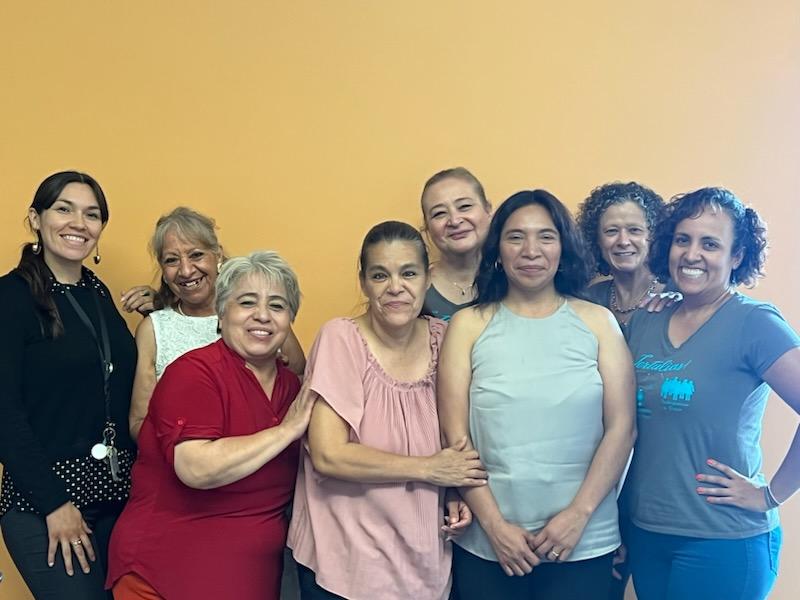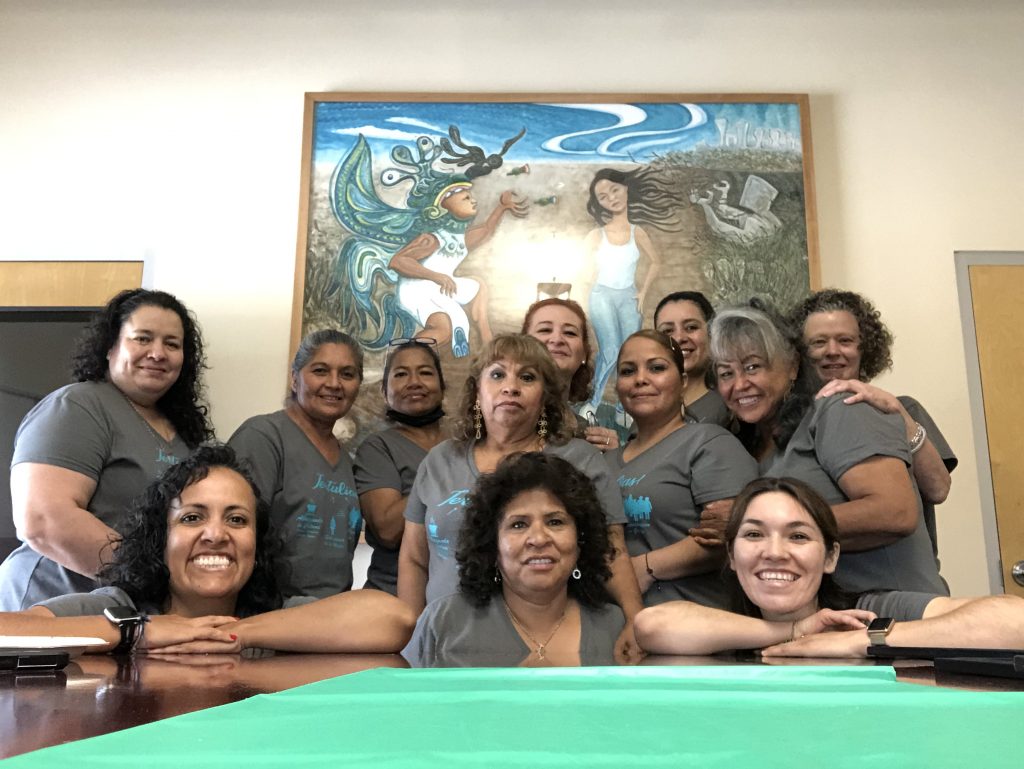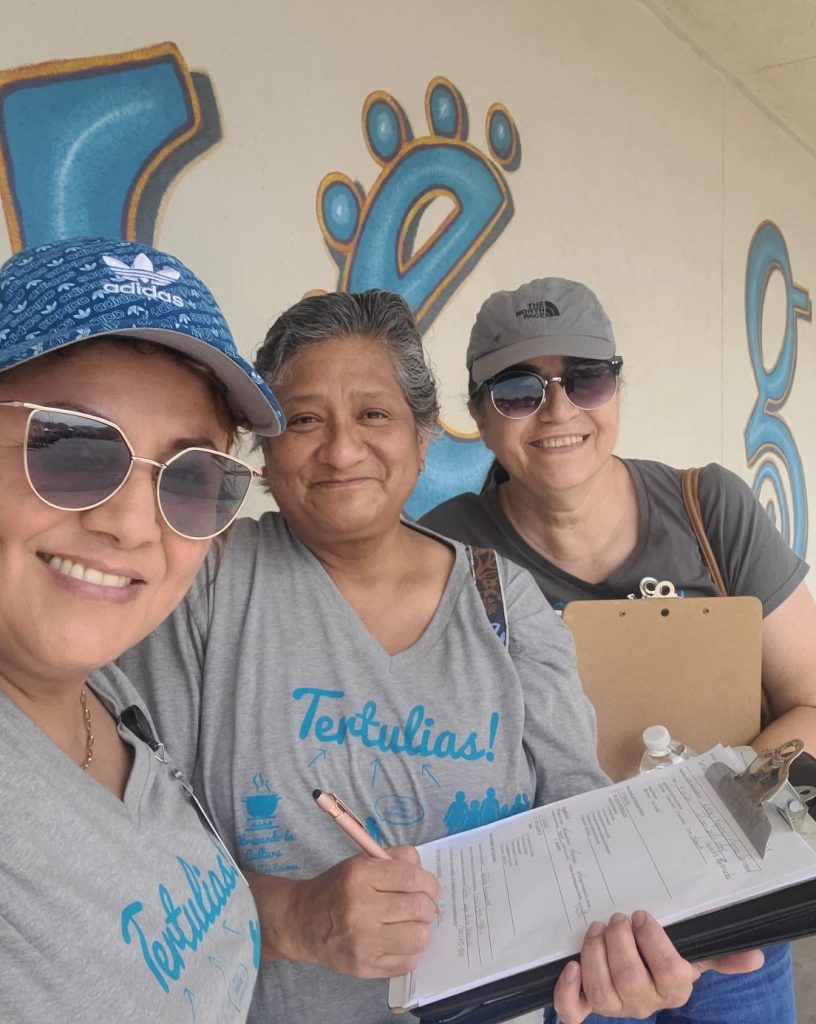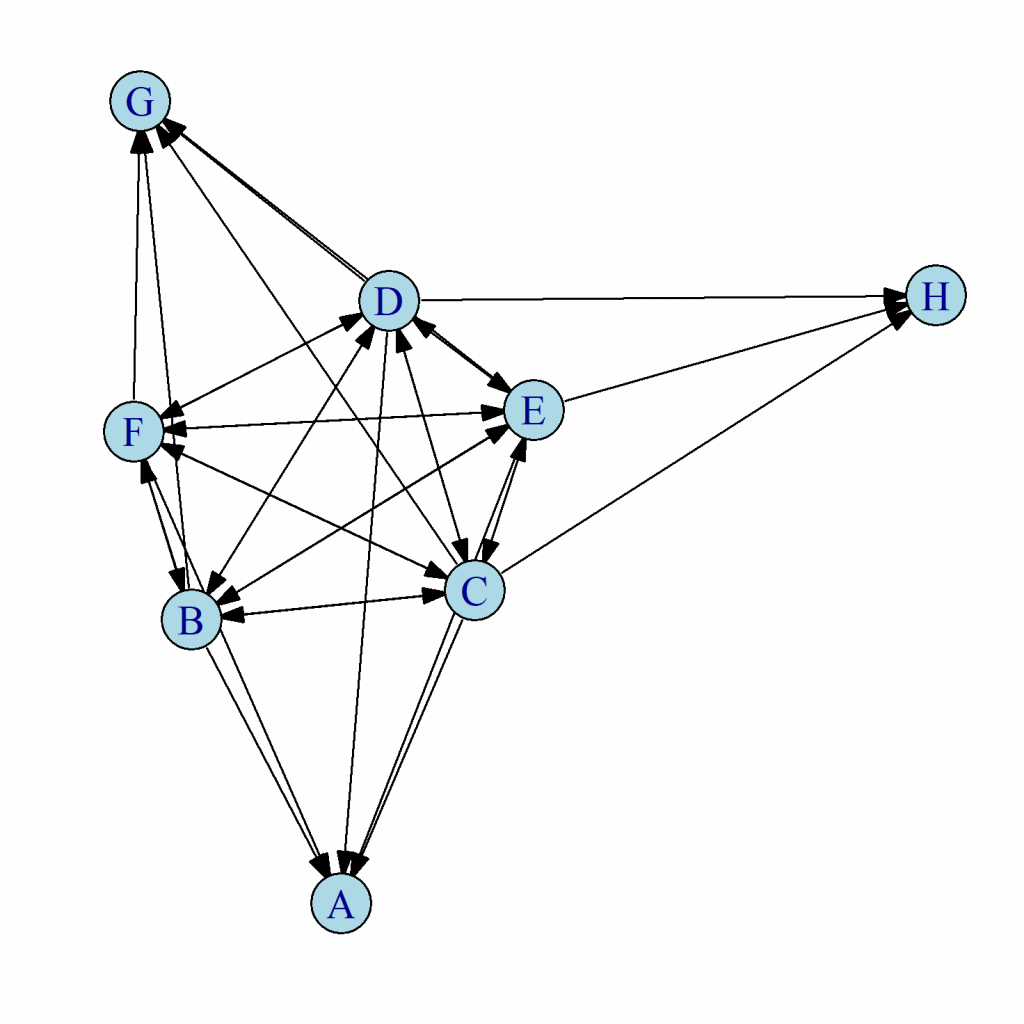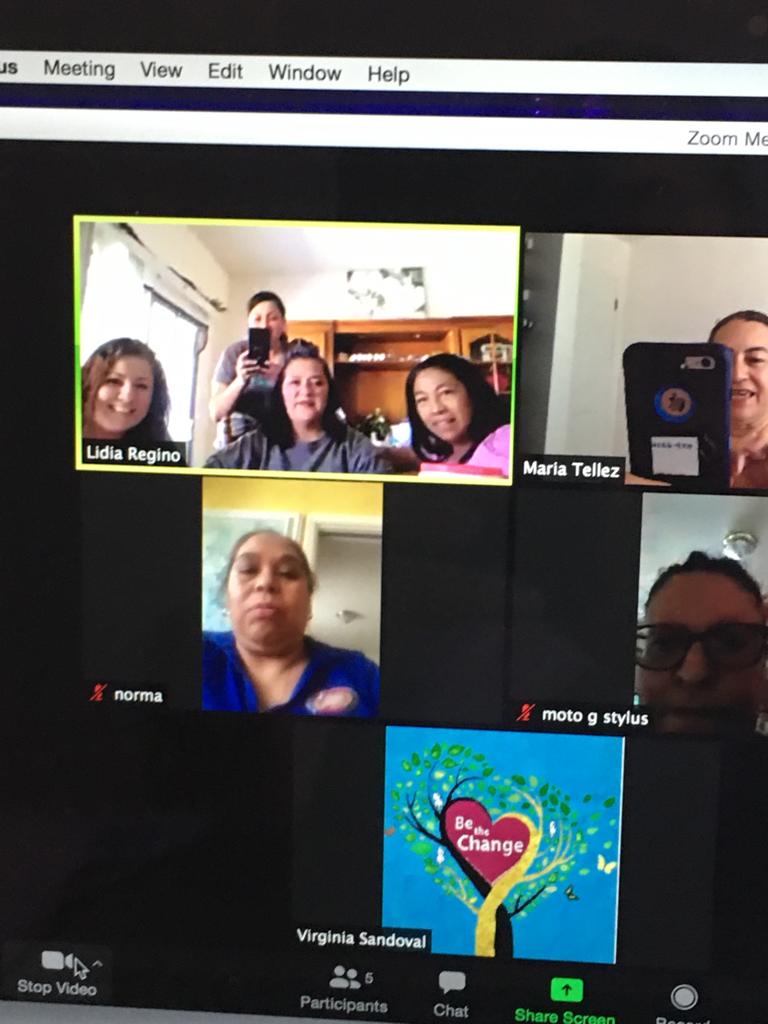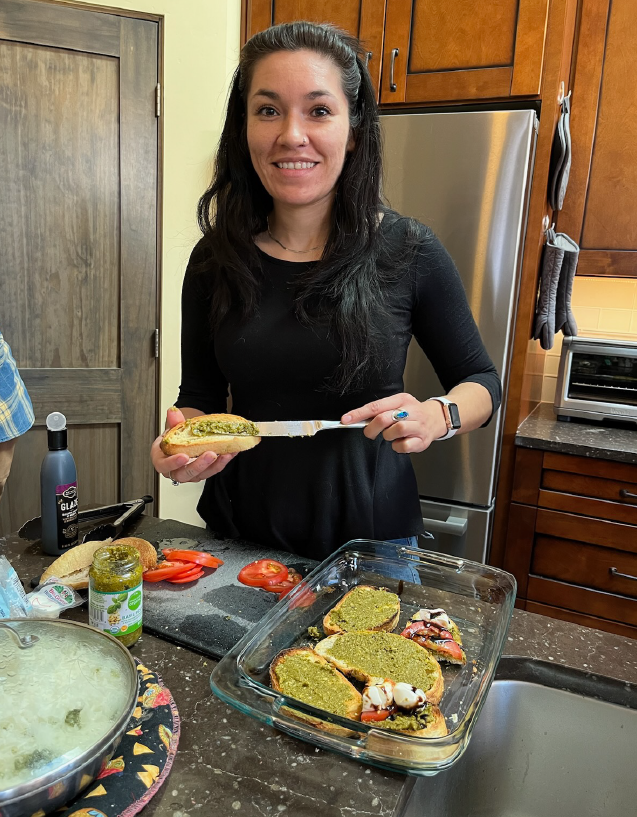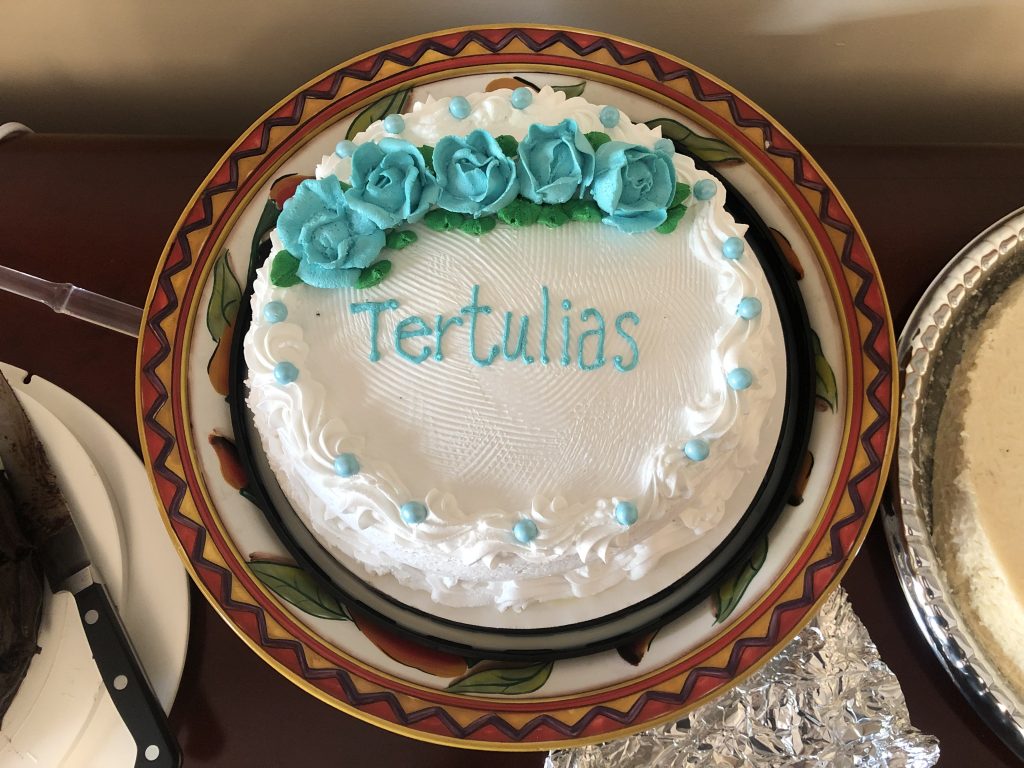The importance of community for reducing social isolation
Social isolation is caused by a lack of social contact. It can lead to loneliness and depression and is often experienced by women immigrants. In their home country, these women were likely to stay at home and create in-depth relationships with other women in their neighbourhood. In the US, they commonly need to work to make ends meet, but the responsibilities of work and family result in a lack of social connection. This leads to high levels of depression and stress. At the University of New Mexico, USA, Dr Janet Page-Reeves and her team hope to reduce the social isolation of Mexican immigrant women by providing peer support groups so women can build new communities.
TALK LIKE A MEMBER OF THE TERTULIAS TEAM
Immigrant — a person who has moved to a different country from the one in which they were born
Peer support — support from people with similar life experiences
Randomised controlled trial — a scientific method to evaluate an intervention, by comparing the outcomes of participants who received the intervention with participants who did not
Ripple effects mapping — a scientific technique to map the impact of something that happens
Social isolation — a lack of social contact
Social network analysis — a scientific technique to map social connections
Undocumented immigrant — an immigrant who does not have the official paperwork to legally live in a country
Have you ever moved to a new neighbourhood or school? What about a new country? If so, what was it like trying to settle into a new environment, a different culture or a different language? If not, how do you think you would feel if you had to find your place in a new community that was unknown and unfamiliar to you? Moving can be hard for many reasons, so it is important that new members of a community are supported as they build their new life.
This is why, at the University of New Mexico, Dr Janet Page-Reeves and her team have created peer support groups for Mexican women who have moved to the US. “Social isolation is common among Mexican immigrant women, which can lead to depression and illness,” explains Janet. “We want to prevent this by helping women to find new connections and a supportive community.”
Why do Mexican immigrant women experience social isolation?
“In the Mexican culture, people have strong ties with their extended family and community,” explains Lidia Regino. “When they leave their home, these connections are broken.” Many Mexican immigrants experience a sense of loss at not only having left their friends and family, but also their culture. “Language is also a barrier to social inclusion in the US,” explains Lidia. “If immigrants don’t speak enough English to get by, they will struggle to access resources and fully integrate into a new community in a new country.” And, if immigrants are undocumented, they may live in fear of discovery and so avoid social contact.
Back in their home country, Mexican men tend to work to support their family while women stay at home as caregivers. After immigrating, men enter the workforce first. “This means Mexican immigrant men are interacting in society sooner,” says Maria Tellez. “Mexican women often follow their partners into the workforce to support the family income, but they also tend to have primary responsibility for children, family and the home, meaning that the time they have left to socialise and develop meaningful relationships with other women is scarce. This leads to feelings of social isolation and depression.”
What are Tertulias?
To reduce social isolation, the team has established Tertulias (Spanish for ‘conversational gatherings’). The Tertulias are peer support groups, facilitated by team members, where Mexican immigrant women living in New Mexico come together in weekly virtual meetings. “Each Tertulias group is different,” says Jackie Perez. While the overall model is the same (a virtual peer support group where women share their experiences), every group has its own personality and its own format.
In some meetings, the facilitators lead discussions around themes the women bring to the group. In others, guest speakers give presentations about topics the women are interested in, such as navigating the US education system for their children or the importance of vaccinations. Some groups read books and listen to songs, to both stay connected with their Mexican heritage and learn about American culture. The women use creative projects to reflect on and express their own experiences, and the facilitators introduce useful resources that will help women in their life in the US. “Sometimes, the women don’t let us talk!” says Jackie. “But we love it when they take the lead in the discussions. This is their group, and the aim is for them to support each other.”
How do Tertulias reduce social isolation?
By participating in a Tertulias group, Mexican immigrant women gain a community. They meet other women in similar situations, who have been through similar experiences and are facing similar problems. This newfound community supports them, provides social interaction and gives them the opportunity to support one another, both within the group and externally. “For example, two women in my group were experiencing grief and loss,” says Jackie. “It was beautiful to see how they motivated and helped each other through their difficulties.”
Comments from the participants themselves highlight just how valuable peer support groups are for improving well-being. “My time at my Tertulias group is the only time I have for me,” said one woman. “It’s the only time I’m not running around doing things for my family.” Having experienced trauma in her own life, another participant commented that, “By joining a Tertulias group, I became the person I was before the chaos happened in my life.” As a result of her involvement in a Tertulias group, this woman trained as a community health worker and now volunteers with women who have also experienced abuse.
Originally, the Tertulias meetings were going to be in-person, but COVID-19 forced them to change to a virtual format. This meant that women in the Tertulias groups gained practical technology skills in addition to opportunities for social interaction. “Many women told us they were initially intimidated by technology,” says Daniel Perez Rodriguez, “but now they are confident in using technology to stay connected, which again helps reduce social isolation.”
Evaluating the impacts of Tertulias
The team has witnessed how the Tertulias groups have improved the lives of the individual women involved and seen how much these women enjoy being part of a Tertulias community. However, to scientifically evaluate whether peer support groups can reduce social isolation among Mexican immigrant women, the team is conducting a randomised controlled trial to compare the outcomes of women who do and do not attend support groups.
Over four years, the team is recruiting 60 Mexican immigrant women a year, 30 of whom are randomly assigned to attend a weekly Tertulias group and 30 of whom are randomly assigned to the ‘control arm’ of the research project in which they do not receive peer support. To analyse the impacts of participating in a Tertulias group or not, the team collects quantitative and qualitative data from both groups of women.
Each year, all participants complete a survey before the study begins, which asks questions about social interactions and well-being, then they complete the same survey again at the end of the study, after they have either spent a year in a Tertulias group or a year with no formal peer support network. The facilitators make observational notes during each Tertulias meeting and, at the end of each year, the Tertulias participants give feedback about their experience of being part of the group. The team conducts social network analysis, to map the social relationships that develop between participants, and ripple effects mapping, to understand how seemingly inconsequential events led to or were caused by other events. Additionally, hair samples are collected from participants to quantitatively analyse and measure cortisol levels, a hormone produced when the body is stressed.
What do the data show?
The randomised controlled trial is still in progress, so the team does not yet have final results. “However, the qualitative data gathered so far shows powerful benefits of peer support groups,” says Janet. “These data also indicate that the Tertulias format is a replicable model, as different women in different Tertulias groups in different years all gave similar feedback about the positive impacts they experienced.”
The Tertulias groups provide women with the opportunity to gain community and support, and these social connections are far deeper than the study project. “Many Tertulias groups continue to meet even after their study period is over,” says Lidia, highlighting how much the women enjoy their new friendships. “It’s like a party when they meet up!”
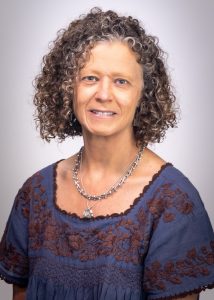 Dr Janet Page-Reeves
Dr Janet Page-Reeves
Department of Family and Community Medicine, University of New Mexico, USA
Field of research: Cultural Anthropology
Research project: Investigating whether peer support groups can reduce social isolation and depression among Mexican immigrant women
Funders: This research was funded by the National Institute of Minority Health and Health Disparities (grant number #1R01MD014153-01) and supported by an award from the National Center for Advancing Translational Sciences, National Institutes of Health (grant number UL1TR001449). Dr Bearer is partially funded by The Harvey Family Endowment.
About cultural anthropology
“Anthropology is the study of humans being human,” says Janet. There are many branches to the field, and cultural anthropology is the branch that studies human societies. “Anthropologists use a holistic perspective to consider people both as individuals and as embedded in their context.” It is important that anthropologists do not just examine issues in the present, but also consider historical perspectives and understand how people, ideas and issues have changed through time. “Anthropology gives you a different way of thinking about the world,” says Janet.
Reference
https://doi.org/10.33424/FUTURUM399
What methods do anthropologists use?
“The classic anthropological approach is doing fieldwork using ethnographic methods and participant observation,” explains Janet. Ethnography is an anthropological approach that involves understanding the context and relationships of communities or culture. This is commonly achieved by participant observation, in which anthropologists spend time with the community they are studying and take part in everyday activities. “Participant observation gives anthropologists unique insights into the lives of people in the communities they are working with and the issues they are studying,” says Janet.
Why is anthropology rewarding?
“I LOVE being an anthropologist!” says Janet. “You have to think incredibly deeply about the data to make sense of the complexity, so I enjoy the thoughtfulness and intellectual quality of anthropology.” Being involved in community-driven research means that Janet does not base her projects on the issues she thinks need to be addressed or use the methods she thinks are best to solve them. Instead, she works with people in the community to discover what issues are important to them, then they work together to find solutions. For example, in a previous project, people were concerned about incidences of diabetes in their community, so Janet worked with them and together they co-created a project to investigate the issue. “It is good to know that my work is directly connected to making the world a better place in practical ways,” says Janet.
Why should you study anthropology?
The skills you learn by studying anthropology will make you attractive to employers in a wide range of different careers. There are many different branches to anthropology, so you can tailor your studies to address the topics and questions that most interest you. “I didn’t start out as a health researcher,” says Janet. “I’m not even a medical anthropologist. I’m a political economic cultural anthropologist, but this still allows me to contribute to health research, as anthropology is at the crux of important health issues, especially those related to social injustice and inequity.”
Pathway from school to anthropology
• Any subjects you study at school will prepare you to study anthropology. “I believe in being a generalist,” says Janet. “Study a broad range of subjects to discover your interests. I would never have discovered anthropology if I hadn’t done that.”
• Many universities offer degrees in anthropology, but other social science degrees could lead to a career in the field. The Society of Applied Anthropology contains a list of universities with applied anthropology degree programmes: www.appliedanthro.org/about/resources
• “A broad, liberal education will give you the tools to think,” explains Janet. “This is more important than having expertise in a specific anthropology topic.”
Explore careers in anthropology
• “An anthropology degree will teach you to think deeply, which will make you employable for many different jobs,” says Janet. “Anthropologists can morph their range of skills to fit many career options.”
• Their ability to uncover connections and relationships means many anthropologists work in politics or government or follow careers that require negotiation and socialisation skills. Anthropologists also work as social workers and community development workers.
• The American Anthropological Association has a wealth of resources related to careers in the field: careercenter.americananthro.org/careers
• Prospects provides information about careers available for people with an anthropology degree: www.prospects.ac.uk/careers-advice/what-can-i-do-with-my-degree/anthropology
Meet the team

Dr Janet Page-Reeves
Role: Tertulias Project Leader
I have always been fascinated by different cultures, and I have a special love for everything related to the Andes. At college, I studied history and international development as I dreamt of working for an organisation that promoted health and welfare in regions where people lack access to resources or political power. When I took an introduction to anthropology class, I fell in love with the subject, but struggled to see how I could apply it to my interests in politics and inequality, specifically in Central and South America.
After college, I did an internship at a ‘think tank’ in Washington DC while working as a waitress to earn money, until I had saved enough to travel to Central and South America. I spent a month in rural Costa Rica followed by two months in Bogota, Colombia. In both places, I lived with local families while attending immersive Spanish language courses. I then travelled through Colombia, Ecuador, Peru and Bolivia to Chile, where I spent six months volunteering with a human rights organisation and a women’s handcraft cooperative in Santiago. This was during the violent and oppressive regime of the then Chilean president, General Pinochet.
One day, I was chatting with someone in a café in Santiago and was excited to discover he was an anthropologist. When I asked what he was studying, his response was, “Poverty”. This was an epiphany for me. I had never considered that I could use anthropology to focus on issues related to poverty, and I realised this was what I wanted to pursue. I returned to the US to do a PhD in cultural anthropology, conducting research with Indigenous women in Bolivia who were knitting sweaters in a cooperative.
I have always rejected the idea that it is OK that some people have the things they need to live a good, healthy life and that others do not. Anthropology has helped me understand that this is not just some ‘natural’ occurrence, but that these inequities and injustices are reproduced every day. I have devoted my career to developing strategies to do something about it.
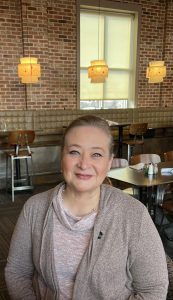
Jackie Perez
Role: Tertulias Group Facilitator
I am a clinical social worker, and for the past 20 years I have been privileged to serve the Spanish-speaking immigrant population. Before becoming a social worker, I worked with survivors of domestic violence and those who had limited resources.
I have always been inspired by people willing to give their own lives to improve the lives of those most in need. Archbishop Oscar Romero and missionary Jean Donovan are two of my heroes. They were martyred in El Salvador in the 1980s due to their commitment to and love for marginalised communities.
I am excited by the Tertulias project because I can provide support for women who suffer from social isolation due to their immigration status. I enjoy interacting with the women in the groups and learning from their experiences and resiliency. I also enjoy the different research activities we do to evaluate the impacts of the Tertulias project.
I have seen the blessing these groups have been for the many immigrant women who have participated in them, as they have decreased social isolation, anxiety and depression. Seeing the women interact and support each other is a highlight of the project.
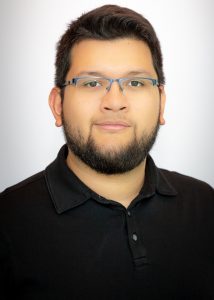
Daniel Perez Rodriguez
Role: Tertulias Data Manager
The Tertulias project is important to me because, although I am not a woman, I am a Mexican immigrant. Our work is shedding light on the issues that Mexican immigrant women deal with daily. I am excited by the project because it is giving a voice to people that don’t often get to speak their minds or share their wisdom. We can use what we learn to help others in similar situations, and it is fulfilling to know that the Tertulias groups have positively affected people’s lives.
As the data manager, I work closely with all the project data as they journey from the study participants to the data analysis team. I oversee the data collection to ensure it is as ‘clean’ as possible, without any errors or missing data, as a clean dataset will make for a more accurate and smoother analysis.
I enjoy mysteries, puzzles and curious tinkering with software and hardware, and I use all these interests in my work. I treat data inconsistencies and errors like a puzzle as I figure out why information is missing or incorrect. If you think working with computers is interesting but coding is overwhelming or not engaging, then a career in data management could be for you.

Maria Tellez
Role: Tertulias Project Coordinator and Group Facilitator
My father was a great source of inspiration in my life. He didn’t have the means to attain a high school diploma (he only finished 4th grade), but he was very smart, and he always encouraged me to work hard and finish my college education. With his inspiration, I obtained a law degree.
Growing up, I saw that my community had many different needs. I became interested in social work because I saw how better community organisation could lead to more positive outcomes. When people are motivated to work towards a common purpose, great change can happen in communities.
I am a community healthcare worker and I love supporting my community. I enjoy seeing people educate themselves about issues facing their community, such as health, education and the environment.
I became involved in research projects because I was curious to learn what research entails. This curiosity also led me to join the Tertulias project, because I was interested in being part of a project focused on Mexican immigrant women (a group that historically has been hard to reach for research). For me, a key finding from this project is that when women socialise, we learn the importance of supporting each other. We discover our inner strength and find the value we have as women.
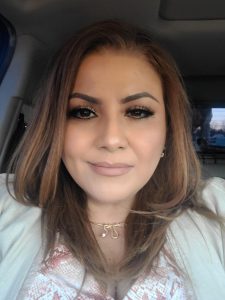
Lidia Regino
Role: Tertulias Project Director and Group Facilitator
I was powerless as a child. I was an undocumented immigrant who didn’t speak English, living in a family that was struggling to make ends meet. I constantly read fairy tales because those stories always had a happy ending. I realised I needed to study to better the lives of those in my family, and I decided becoming a lawyer would give me power to make positive changes in broken systems.
In middle school, I started advocating for equality and equity, and I would always defend students who were bullied. When I was about to graduate from high school, I found an angel in my life. This was at a time when undocumented immigrants couldn’t attend college on in-state tuition. He helped me and other Mexican immigrant students to walk a path we didn’t think we could follow, and I obtained a degree in university studies. My studies were focused on political science, but I was also drawn to public health, community advocacy, public policy and community work.
As a community health worker, I have spent 30 years advocating for the immigrant community to remove structural barriers that immigrants face. For example, I have advocated for healthcare access for everyone, including undocumented immigrants, and campaigned for every New Mexican resident to receive in-state college tuition, regardless of immigration status. I am also passionate about working directly with people in need and helping them navigate systems, by linking them to resources and supporting the creation of non-existent ones. For example, I have worked with non-profits and community advocates to develop translation and interpretation services in public institutions, such as the UNMH hospital.
Working closely with the Tertulias participants and seeing their growth has been a highlight of this project. As a Mexican immigrant woman, it is rewarding to see the positive change other Mexican immigrant women experience through their participation. I am proud that this project has made a difference in the lives of women and their families and disrupted the pattern of isolation for many women.
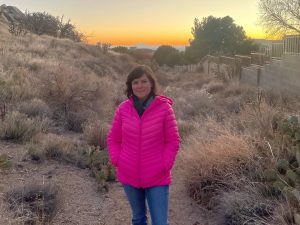
Dr Cristina Murray-Krezan
Role: Tertulias Biostatistician
As a biostatistician, my role in the Tertulias project is to help design and analyse the randomised controlled trial. Before beginning, we had to figure out how we would determine whether participants in the Tertulias groups had reduced social isolation compared to participants who weren’t in a Tertulias group. This meant figuring out what variables we could measure to show a difference in social isolation, how big these differences would need to be to be statistically significant, and therefore how many participants we needed to include in the study.
My journey to become a biostatistician was rather untraditional. As I child, I wanted to be a doctor, but then I went to college to study flute performance. I ended up graduating with a degree in astrophysics, then worked in a medical research lab. When I realised I could apply math to my interest in medicine, I returned to college to study statistics. The best thing about being a biostatistician is that I can work in any medical or social science field.
I love being part of this project because I get the opportunity to help people who are often ignored in American society. Immigrants face so many obstacles in a new country, so it is rewarding to know our work is helping people live happier and healthier lives by improving social connections. It is exciting to analyse the data and see how participants’ social networks have grown though their involvement with Tertulias.

Dulce Medina Bustillos
Role: Tertulias Group Facilitator
I arrived in the US as a teenager and had difficulties adjusting as I didn’t have the required support. As a Mexican native and first-generation immigrant, I understand the importance of social and family support in my culture.
My father instilled in me the importance of a college education, but, at that time, undocumented students had no access to scholarships. I was determined to go to college, so I worked multiple jobs to afford my tuition, and my mother found an organisation that helped me apply. In the end, I graduated with two degrees in business. I have since returned to university to pursue master’s degrees in social work and business administration.
Twelve years ago, my destiny took me to work at a mental health agency, where I discovered the need for Spanish speaking providers. Since then, I have been working as an interpreter, translator and community health worker for Latino community members.
I developed an interest in research during my master’s studies and have participated in other research projects. However, Tertulias is special to me because it hits close to home. Many Mexican women leave family in Mexico and lack support when they arrive in the US. I facilitate a Tertulias group and have seen how it helps Mexican women feel closer to their culture, build support for each other and become friends.
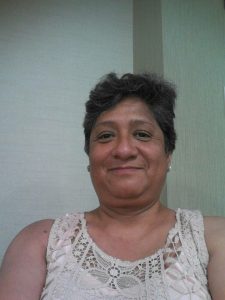
Virginia Sandoval
Role: Tertulias Project Manager and Group Facilitator
Working with women from different walks of life inspires me. I have heard very powerful stories from women who have suffered traumatic experiences, but, after all their hardships, they have still survived. They are a clear definition of what resilience means.
I am a Mexican immigrant, and my involvement with the Tertulias project gives me the opportunity to help other women like me. I support them in accessing resources, continuing their education and finding ways to engage in community programmes.
As a community health worker, I work with my community to address health-related needs. I know how important this role is for communities, so I encourage Tertulias participants to obtain their community health worker certification.
I love working on community research projects because they teach me many different ways of seeing things. I have a degree in psychology, but community research has opened new ways of thinking. Through this work, I have also had the opportunity to train as a phlebotomist (someone who takes blood samples).
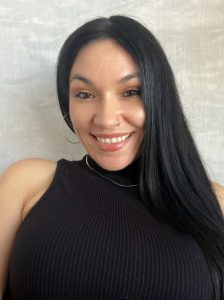
Camille Vasquez
Role: Tertulias Coordinator
I became involved in the Tertulias project because I love working with people. I truly believe ‘nuestra cultura se cura’ (‘our culture heals’). I believe in cultural empowerment, people empowerment and community empowerment.
I am a first-generation Chicana (American of Mexican descent) and am passionate about helping communities. I have aspired to improve health outcomes throughout New Mexico because impacts to health do not just affect us personally – the unhealed and untreated traumas follow for generations.
My dad came to the US from Mexico in his 20s, with dreams of becoming a doctor that he has been unable to fulfil. My mom is from a long lineage of rural New Mexicans. As a result, I have felt the generational impact of systemic racism, trauma, inequality and inequity. This is part of my ‘why’.
At university, I studied nursing, Spanish and Chicano/a studies. In 2018, I started my own company, Camille’s Consulting, which provides support for organisations focused on improving health outcomes through social and economic development. When I work with projects, I always ask myself, “Could this have made a difference for my sisters, my brother, my mom or my dad, or for my life?” I believe everyone should have equitable access to pursue their dreams and reach their greatest potential.
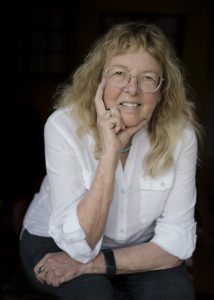
Dr Elaine Bearer
Elaine is a neuroscientist and pathologist. She is leading the cortisol measurement aspect of the Tertulias project.

Dr Reuben (Jack) Thomas
Jack is a sociologist studying the social structure of relationships. He conducts the social network analysis for the Tertulias project.
The team’s top tips
1. Remember that even the smallest actions can make change and build a better world.
2. Always work unselfishly for the community and be the voice of those whose voices have been oppressed.
3. Participate in community research because you will gain important skills and learn about human lives.
4. Don’t give up when you face hard times or obstacles. Stick with it; you will succeed!
5. Remember that your interests may evolve and your goals may move as you grow up. Life experiences may cause your path to change, and that’s okay.
6. Surround yourself with people who believe in you and support you. Most importantly, believe in yourself.
7. Whatever you do, do it with passion, and work to be the best you can be.
Tertulias art

“I painted this butterfly because I am her. Like a butterfly, I had to go through a process of change to be the woman that I am now. And, like her, I was once a cocoon that had to walk slowly before I transformed into a beautiful butterfly. I was made to feel ugly, inside and out. But, little by little, I started to change. In my process of change, I was also being hurt. Six months ago, my transformation, as a woman and as a person, began.
“The colours have a meaning of their own. The black represents the pain I went through to get here. The blue represents my children, life and motivation to be the best mother, a better person and a great woman. The white dots represent my dreams. There are a lot of dots because I am a dreamer.
“I thank Tertulias for the support that was given to me. When I would break down, they would give me a breath of fresh air to keep on going. They are a great team of great women who construct other women.
“Now, I am a butterfly. I have my wings wide open because I know I am beautiful inside and out. There are people fighting a war in their heads that keeps them from seeing their own beauty. Like the butterflies, they don’t see their own beautiful wings. If you see something beautiful in a person, make them aware of it.
Laura Venegas
Tertulias participant, 2023
Do you have a question for the team?
Write it in the comments box below and the team get back to you. (Remember, researchers are very busy people, so you may have to wait a few days.)

